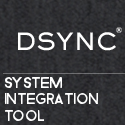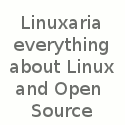Article by Tim Teatro published on http://whatsyourtech.ca/
Why Linux? The user who is looking for a complete and simple desktop operating system that allows them to get work done efficiently and doesn’t get in the way—why would that person choose Linux? Why should you choose Linux? I started using Linux because it made my job easier and because it was a fun toy. At the time, (about 8 years ago), I wouldn’t have recommended desktop Linux to any average user. In the time since, I’ve seen Linux evolve in so many different directions. There was a time when Linux was the hardcore hacker’s operating system, but now it’s popular amongst students, home users, small businesses, artists, home office users and hackers alike. If you fit into any of those categories, Linux could be for you.
As Linux got simpler to use, communities of users grew around it. Every major urban area has a Linux Users Group (LUG), and Canada has some of the best: GTA Lug, Ottawa LUG, Montreal LUG, Vancouver LUG, Calgary LUG, Edmonton LUG. Although I recommend everyone start with Ubuntu (check out my article on trying Ubuntu under Windows), LUG communities really are a great way to find out about your options. Try Googling the LUG in your city. Simultaneously, one of the best and worst things about Linux is choice. Because Linux is free and open source software, there are many many flavours of it. Unlike Windows, which exclusively belongs to Microsoft, or MacOS which belongs to Apple, Linux doesn’t belong to anyone (or, belongs to everyone depending how you look at it). So, many companies or communities package it according to their tastes. (As of this writing, distrowatch.com is tracking nearly 700 distributions.) Not only does one have choice with the Linux distributions itself, but the software traditionally packaged as part of a Linux desktop (media players, office productivity, graphics, etc) often come in similar variety.
With so much confusion, why bother?
So back to the question: why use Linux? Well…
- Choice is good: You’ll soon learn to wade through your options quickly. However, having such control over your environment has a large impact on your work-flow and productivity. The steeper learning curve pays off big-time.
- Ultimate security: Linux is safer than Windows or MacOS. A lot of that is simply because there are fewer viruses, but the system is more secure in principal as well.
- Better driver support out of the box: Don’t you hate spending hours installing drivers after a fresh Windows install? Most of your hardware should work out of the box on popular Linux distributions.
- It’s more complete: Out of the box, most distributions come with professional quality office productivity, graphics software, and alike. You don’t have to fool around installing things after a reformat.
- Package management: The keystone of any Linux distribution is a package management system. Unlike Win and Mac, if you want more software, you browse through a catalogue and have a 1-click install.
- Unified updates: This is really part of package management, but it’s important enough to be mentioned on its own. When you do a software update, it updates all of your software in one go. No need for Adobe updater, Firefox updater, Windows Live update, Java update,…
- More dynamic: There’s always something new in the Linux scene for those feeling adventurous. Also, bugs are quickly fixed since the gap between user and developer is quite thin. The Linux development model is driven by the user experience.
- Better support: Support for Win and Mac is expensive. The Linux community is incredibly friendly and helpful. Almost any problem is never more than a Google search from being fixed, but if you need to, there’s always someone to ask. (In many cases, you are free to ask the actual developer!)
- More stable: Crash less, and almost never reformat. Linux is designed to run for months, even years at a time with minimal maintenance.
- PDF creation and editing: Most distributions support PDF creation out of the box. A few mouse clicks will get you a pdf editor too.
- MS Office support out of the box:LibreOffice or OpenOffice ship with almost all distributions of Linux, and both support editing and saving MS office documents.
I can’t leave out the most important reason for anyone to use Linux: the more people we have using it, the better it becomes. Linux has grown so much in just the past few years, and every year it grows faster.Ubuntu really got the ball rolling, and now Google (a la Android) has made Linux mainstream as a mobile platform. It is an irrepressible part of the ever progressing technology landscape. If you’d like to try Linux, check out my article on Linux for your desktop.




Leave a Reply